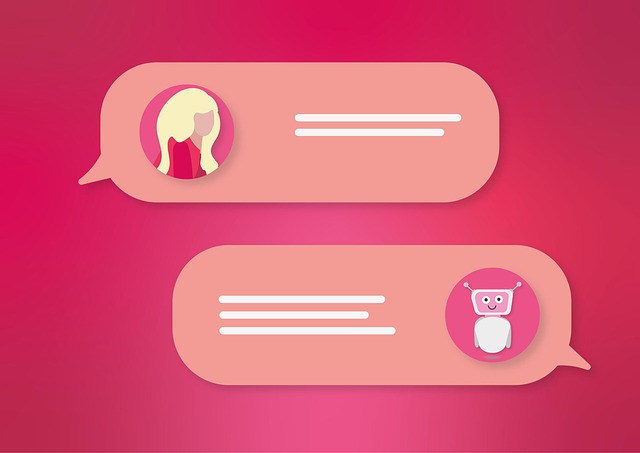AI chatbots online have evolved from simple rule-based assistants to sophisticated conversational agents powered by machine learning, deep neural networks, and natural language processing (NLP). They offer seamless interaction across various tasks, continuously learn, and improve. These chatbots revolutionize customer service with 24/7 availability and versatility, streamlining operations and boosting client satisfaction. As they integrate into daily life, ethical considerations like privacy protection and bias mitigation are crucial. Future trends include enhanced NLP for more natural conversations, improved context awareness, and expanding applications in healthcare, education, and entertainment, promising to significantly impact daily life.
“Explore the dynamic world of AI chatbots online, where technology meets conversation. This article takes you on a journey through the evolution of these virtual assistants, from their humble beginnings to today’s advanced applications. Uncover the inner workings of AI chatbots and their multifaceted benefits for businesses. We delve into ethical considerations, ensuring responsible development, and explore future trends shaping this exciting field. Discover how AI chatbots are revolutionizing online interactions and transforming industries.”
- The Evolution of AI Chatbots: Past and Present
- How AI Chatbots Work: Behind the Scenes
- Benefits of Online AI Chatbots for Businesses
- Ethical Considerations in AI Chatbot Development
- Future Prospects: Trends Shaping AI Chatbots Online
The Evolution of AI Chatbots: Past and Present

The evolution of AI chatbots has come a long way since their early beginnings. Initially, these virtual assistants were basic, following pre-programmed rules to provide straightforward answers. They were often limited to specific tasks and lacked the ability to understand natural language nuances. However, with advancements in machine learning and deep neural networks, AI chatbots have transformed into sophisticated online companions. Today’s chatbots can engage in complex conversations, learn from user interactions, and adapt their responses accordingly.
The present-day AI chatbot experience is characterized by seamless human-machine interaction. These chatbots use advanced natural language processing (NLP) to interpret user queries and generate contextually relevant answers. They can assist with a wide range of tasks, from customer service and online shopping to entertainment and personal assistance. The ability to continuously learn and improve makes modern AI chatbots an integral part of the online experience for many users worldwide.
How AI Chatbots Work: Behind the Scenes

AI chatbots online are powered by complex algorithms and deep learning models that enable them to understand and generate human-like text. At their core, these chatbots rely on vast amounts of data collected from various sources, which they use to train their neural networks. During training, the model learns patterns, contextual relationships, and semantic meanings from millions of conversations or textual documents.
Once trained, the AI chatbot uses this knowledge to process user inputs in real-time. When you type a message, the chatbot analyzes it, identifies keywords and context, and generates an appropriate response based on its training. This process involves sophisticated techniques like natural language processing (NLP) and machine learning, allowing chatbots to provide relevant, coherent, and contextually appropriate answers, making interactions with them feel more human-like than ever before.
Benefits of Online AI Chatbots for Businesses

Online AI chatbots offer a myriad of benefits to businesses across various industries. One of their key advantages is 24/7 availability, allowing companies to provide instant customer support and enhance user experiences at any time. By deploying these virtual assistants, businesses can reduce response times, increase client satisfaction, and improve overall operational efficiency.
Additionally, AI chatbots online are highly versatile. They can handle a wide range of tasks, from answering frequently asked questions and processing simple transactions to gathering customer feedback and qualifying leads. This versatility liberates human agents to focus on more complex issues, thereby optimizing resource allocation and driving business growth.
Ethical Considerations in AI Chatbot Development

As AI chatbots gain popularity and become more integrated into our daily lives, ethical considerations in their development are paramount. These digital assistants have the potential to significantly impact users’ experiences online, but they also raise complex issues related to privacy, bias, and transparency. Developers must ensure that chatbot interactions are fair, unbiased, and respect user data. This involves implementing robust data protection measures, being transparent about data collection practices, and mitigating potential biases in training data to prevent discriminatory outcomes.
Additionally, the ability to generate human-like text requires careful thought regarding misinformation and fake news. Chatbots should be designed with mechanisms to verify facts and provide reliable information. Users interacting with AI chatbots online need guarantees that conversations remain secure, their privacy is respected, and the technology is used responsibly to promote a positive digital environment.
Future Prospects: Trends Shaping AI Chatbots Online

The future of AI chatbots online looks promising, with several trends setting the stage for significant advancements. One prominent trend is the increased integration of natural language processing (NLP) capabilities, allowing chatbots to understand and generate human-like text more accurately. This enhancement enables more fluid conversations, making interactions feel more natural and intuitive. As technology advances, we can expect AI chatbots to become even better at context awareness, memory retention, and adaptive learning—features that will enable them to provide personalized experiences to users across various platforms.
Another key trend is the expansion of chatbot applications beyond customer service into healthcare, education, and entertainment domains. Chatbots are increasingly being leveraged for mental health support, providing users with accessible and affordable counseling services. In education, they facilitate personalized learning by offering tailored explanations and practice exercises. Additionally, chatbots are transforming entertainment experiences by creating interactive storytelling and gaming opportunities. These diverse applications highlight the versatility of AI chatbots online and their potential to enhance various aspects of our daily lives.
AI chatbots online have evolved significantly, transforming from rudimentary tools to sophisticated companions. As we’ve explored their evolution, inner workings, benefits for businesses, ethical considerations, and future trends, it’s clear that these virtual assistants are here to stay. AI chatbots continue to revolutionize customer service, enhance user experiences, and offer unprecedented support across various industries. With ongoing advancements, the potential for these technologies to shape our digital interactions and improve efficiency remains boundless.
